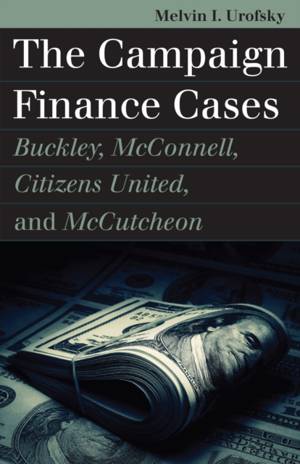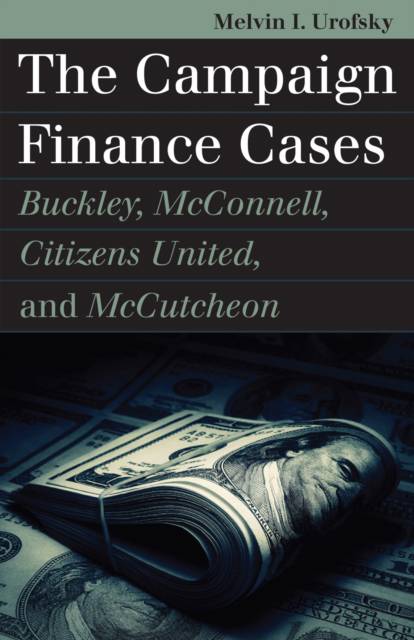
Je cadeautjes zeker op tijd in huis hebben voor de feestdagen? Kom langs in onze winkels en vind het perfecte geschenk!
- Afhalen na 1 uur in een winkel met voorraad
- Gratis thuislevering in België vanaf € 30
- Ruim aanbod met 7 miljoen producten
Je cadeautjes zeker op tijd in huis hebben voor de feestdagen? Kom langs in onze winkels en vind het perfecte geschenk!
- Afhalen na 1 uur in een winkel met voorraad
- Gratis thuislevering in België vanaf € 30
- Ruim aanbod met 7 miljoen producten
Zoeken
€ 50,95
+ 101 punten
Omschrijving
Rarely does the Supreme Court reverse itself as quickly and profoundly as it did in recent campaign finance cases, with the Citizens United decision of 2010 undoing the constraints of the McCain-Feingold Act upheld in McConnell v. Federal Election Commission (2003). And rarely have the stakes seemed so high, as billionaires vie for elected office and dark money floods political campaigns. In timely fashion, this new edition updates Melvin Urofsky's classic study of campaign finance law, bringing his cogent analysis of the relevant statutes and court cases up to date. Urofsky explains in clear and convincing language what was--and is--at stake in the twists and turns of campaign finance laws taken up by the nation's highest court in the past decades. Beginning with Buckley v. Valeo (1976) and moving through McConnell, Citizens United, and finally McCutcheon v. Federal Election Commission (2014), Urofsky discusses the two principles at issue in these cases: freedom of political speech, and the protection of the political process from undue influence. Conventional wisdom holds that in such cases liberals want greater restrictions and conservatives want corporations to have greater freedom to influence voters. But working from a rich store of primary sources, probing the motivations and ideas of all participants in the campaign finance legal story, Urofsky reveals a far more complex picture, one whose significance transcends simple political ideologies. In a time of controversies over political speech in the blogosphere, social media, and cable news, and claims of electoral fraud, The Campaign Finance Cases offers a much-needed, balanced account of how issues critical to American democracy figure in the adjudication of campaign finance law, and how a changing political and media landscape might alter the process.
Specificaties
Betrokkenen
- Auteur(s):
- Uitgeverij:
Inhoud
- Aantal bladzijden:
- 248
- Taal:
- Engels
- Reeks:
Eigenschappen
- Productcode (EAN):
- 9780700629886
- Verschijningsdatum:
- 23/10/2020
- Uitvoering:
- Paperback
- Formaat:
- Trade paperback (VS)
- Afmetingen:
- 137 mm x 213 mm
- Gewicht:
- 317 g

Alleen bij Standaard Boekhandel
+ 101 punten op je klantenkaart van Standaard Boekhandel
Beoordelingen
We publiceren alleen reviews die voldoen aan de voorwaarden voor reviews. Bekijk onze voorwaarden voor reviews.









